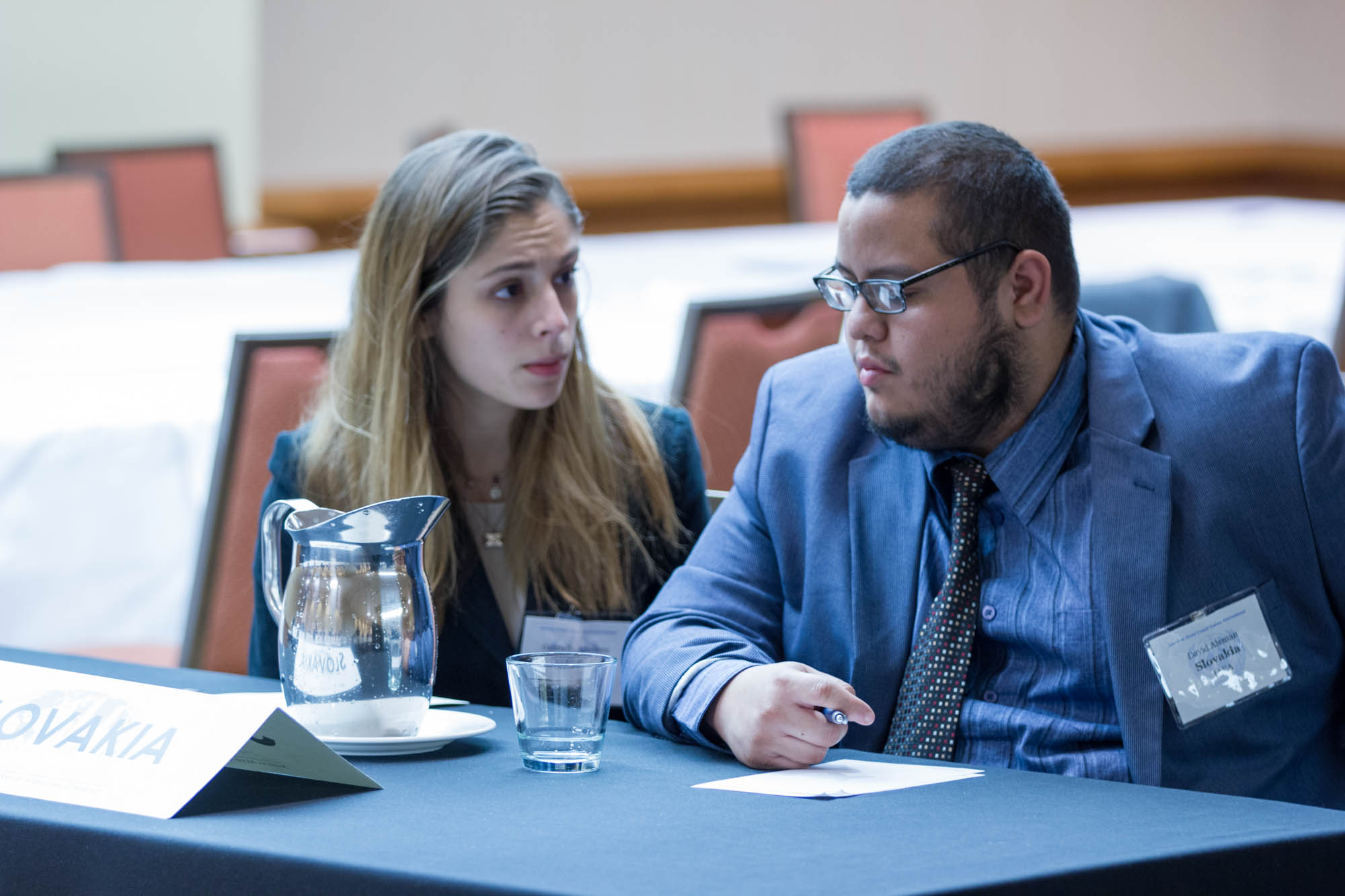
Report Writing 101: Understanding Reports and Report Drafting

So you’ve been assigned to a report-writing body at AMUN. You’ve done the research. You’ve drafted a fair number of resolutions but you’ve never drafted a report. Now what?
Let’s begin with a simple question: What is a report-writing body at AMUN? At AMUN, we simulate two report-writing bodies, usually connected to the Economic and Social Council (ECOSOC). The Economic and Social Council is structured to receive reports from expert bodies, which use reports to make recommendations to the broader council. Three primary types of bodies provide reports to ECOSOC. There are functional commissions (e.g., the Commission on Crime Prevention and Criminal Justice or the United Nations Forum on Forests) and regional commissions (e.g., Economic Commission for Europe or the Economic and Social Commission for Western Asia), both composed of Member State representatives. There are also expert groups with more varied membership. Some expert groups are composed of governmental representatives (e.g., United Nations Group of Experts on Geographical Names), while others are composed of experts acting in their personal capacity (e.g., Committee of Experts on Public Administration). All of these bodies work primarily through writing reports and making recommendations. AMUN’s report-writing bodies simulate that process. This year, AMUN is simulating the Commission on Population and Development (CPD) and the Committee for Development Policy Expert Group (CDPEG). For a full listing of AMUN’s of 2018 simulations, click here.
Now that we know what a report-writing body is, let’s talk about reports. A report has five separate sections: the Executive Summary, Matters Calling for Action, Consideration of the Status, Resolutions and Decisions Adopted by the Commission, and Adoption of the Report. As you look through each section of AMUN’s sample report (which can be found here), you’ll notice that there are two types of resolutions in the report. The resolutions in Chapter I are drafts of resolutions that the commission recommends to the plenary body for consideration and passage. Adoption of a draft resolution into the final report does not equal immediate adoption by the plenary body. On the other hand, Chapter III resolutions are not drafts. Rather, they are resolutions actionable by the report-writing body itself. Since the primary goal of most report-writing bodies is compiling research and expert opinion into a report, the scope of these resolutions is usually quite limited.
A Chapter I draft resolution is a formal recommendation to the plenary body to take a set of actions. Recommendations made by the report-writing body do not come about without serious discussion. This is where the deliberations come in. Nestled in Chapter II, the Deliberations section will often contain the most content and take the longest to draft. It is a record of the discussions on the topic that have taken place throughout the Conference, and is typically the least controversial section of the report. A thoroughly compiled Deliberations section allows the plenary body to understand why the body has made its recommendations. Once you’ve helped draft the what and the why, the rest of the report comes easily. At AMUN, report writing bodies will have two topics for discussion during the simulation. While one will likely become the main focus of the body, you will have a chance to write two reports, one for each topic.
The Special Rapporteur in your simulation has specialized training to help guide you through the report-writing process. As experts in content, with a detailed understanding of the report itself, they are there as a resource for you throughout conference. They are also members of the broader AMUN Secretariat, should you have questions about other departments, committees, the Conference over-all, or even a nice place to eat out in Chicago. Never hesitate to ask them for help should you need it.
The Conference is quickly upon us. With this knowledge, you can help your fellow Representatives understand the drafting process, avoid resolution confusion, and contribute to a diplomatic and successful report writing experience at AMUN 2018. See you there!
Keep Up With The Accords
More to read
The AMUN Accords is a premier resource for fact-based Model United Nations simulations. We are always looking for new contributors. Want to write for the AMUN Accords? Check out out the submission guidelines and then get in touch!




